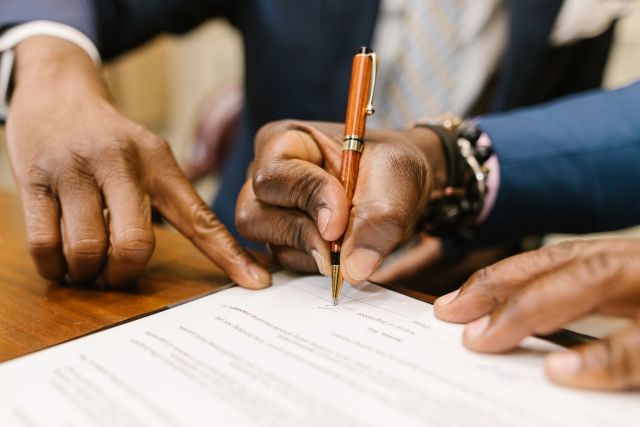Lawyer's Duty in Declaring a Habeas Corpus Application Explained
Lawyer's Duty in Declaring a Habeas Corpus Application Explained
Blog Article
Understanding the Role of a Post-Conviction Lawyer in Looking For Justice After a Criminal Sentence
In the complicated landscape of post-conviction legal process, the duty of a post-conviction lawyer is critical in navigating the course to justice after a criminal conviction. Beyond the boundaries of a trial, these lawyers participate in a complex technique targeted at uncovering brand-new evidence, tough lawful errors, and supporting for their clients' rights. The intricacies of post-conviction job need a blend of lawful acumen, investigative abilities, and calculated believing to untangle the intricacies of a situation and pursue opportunities that may have been forgotten or underexplored. As the quest of justice extends past the confines of preliminary proceedings, the duty of a post-conviction attorney becomes a beacon of wish for those seeking to fix injustices and reclaim their rights within the legal system.
Post-Conviction Attorney's Investigative Job
Post-conviction legal representatives take part in meticulous investigatory work to reveal new proof, procedural errors, or misbehavior that might possibly cause overturning a sentence. This investigative stage is vital in the post-conviction process as it intends to identify any kind of ignored details or legal errors that might have affected the end result of the preliminary trial. Post-conviction lawyers look into instance files, witness testaments, and legal documents with a fine-tooth comb, looking for any kind of inconsistencies or irregularities that might be grounds for appeal.
With comprehensive investigation, post-conviction attorneys intend to lose light on possible oppressions that might have occurred during the original trial. By scrutinizing every element of the legal procedures, post-conviction attorneys work tirelessly to discover any type of aspects that might have affected the judgment.
Crafting Appeals and Petitions
In the search of justice after a sentence, experienced attorneys thoroughly craft charms and requests to present engaging debates for the reconsideration of lawful decisions. Crafting appeals and applications calls for a deep understanding of the legal system, interest to information, and critical thinking. Post-conviction attorneys assess test documents, determine prospective mistakes or violations of legal rights, and develop legal debates to test the sentence or sentence.
When crafting an allure, lawyers concentrate on highlighting lawful mistakes that may have influenced the end result of the situation. They research instance regulation, laws, and lawful precedents to support their debates. Applications, on the other hand, might include providing new proof that was not readily available during the trial or showing modifications in the law that call for an evaluation of the conviction.
Additionally, post-conviction attorneys must stick to stringent step-by-step policies and deadlines when submitting appeals and applications. They need to present their debates clearly and persuasively to convince the court to approve relief to their customers. Through careful crafting of allures and petitions, post-conviction attorneys strive to safeguard justice for people that have been wrongfully founded guilty or unfairly sentenced.

Seeking Post-Conviction Relief
Post-conviction alleviation encompasses an array of legal devices created to challenge the credibility of a conviction or sentence. Post-conviction attorneys play an essential duty in navigating these intricate procedures, making certain that all legal alternatives are checked out to fix injustices that might have occurred during the test or sentencing phase.
One typical type of see post-conviction relief is submitting a petition for post-conviction relief, usually based on insurance claims of inefficient help of advise, prosecutorial transgression, freshly uncovered proof, or constitutional offenses. Experienced post-conviction legal representatives possess the skills and knowledge required to identify viable legal cases, perform examinations, and present compelling disagreements to safeguard relief for their customers.
Using Forensic Proof
When testing a sentence or sentence, the tactical utilization of forensic evidence can be an effective device in post-conviction lawful process. Forensic evidence encompasses a broad range of clinical methods utilized to investigate crimes and develop truths in court. Post-conviction attorneys can leverage forensic proof to challenge the validity of sentences by providing new clinical searchings for that were not available throughout the original test.

Participating In Sentence Alterations
Post-conviction lawyers may check out the opportunity of sentence modifications as a legal avenue to resolve out of proportion or unjustified sentences bied far in criminal situations. Sentence modifications involve looking for adjustments to the regards to a defendant's sentence after a conviction has actually happened. These adjustments can include reducing the size of a sentence, changing the type of penalty enforced, or exploring different sentencing alternatives.
Post-conviction attorneys can pursue sentence alterations with various lawful systems, such as filing activities for sentence reduction, appealing for compassionate launch, or negotiating appeal offers for reduced sentences. They have to very carefully evaluate the circumstances of the situation, evaluate the lawful grounds for looking for a modification, and existing engaging disagreements to the court sustaining the requirement for a modified sentence.
Taking part in sentence alterations needs a comprehensive understanding of criminal regulation, sentencing standards, and the particular treatments entailed in seeking post-conviction relief. Post-conviction legal representatives play an important role in supporting for fair and simply outcomes by difficult sentences that are unduly extreme or do not straighten with the principles of justice.
Verdict
To conclude, the function of a post-conviction legal representative is important in looking for justice after a criminal conviction. With investigatory work, crafting charms and applications, pursuing post-conviction alleviation, using forensic proof, and engaging in sentence modifications, these lawyers play an important function in supporting for their customers and guaranteeing that their legal rights are promoted within the criminal justice system. Their dedication and expertise are essential in navigating the intricacies of post-conviction process and achieving a fair outcome for individuals dealing with criminal sentences.
Report this page